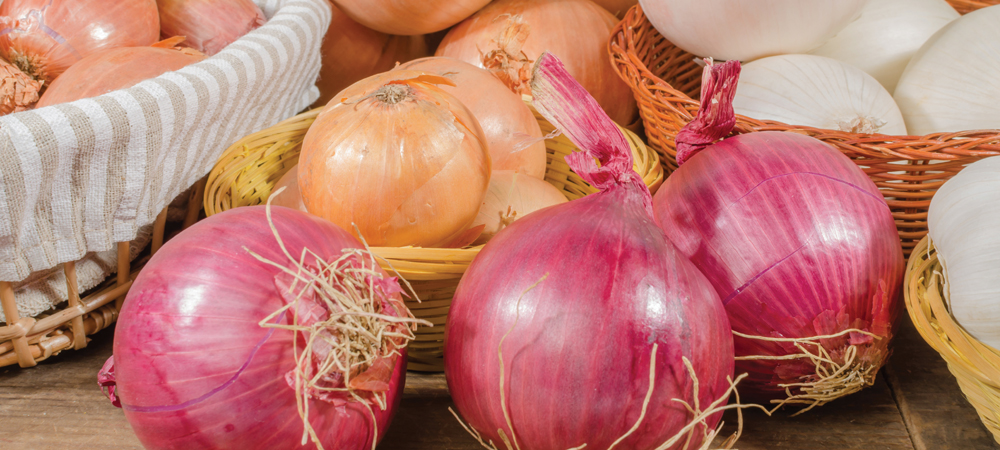Onions the humble super food
By: Juli Maddock
Who doesn’t love the tantalizing aroma of fresh onions sautéed and caramelized in a little olive oil?
As a classic topping for a burger, a sandwich filling or spread on toasted French bread with goat cheese crumbles— the possibilities are endless!
It’s time to unpeel the layers of this vegetable (yes, it’s a veggie, not a fruit) and find out why onions were worshiped by the ancient Egyptians and still held sacred today by cooks around the world.
According to the “Encyclopedia Britannica,” the onion is one of the world’s oldest cultivated plants. Gardeners today find them easy to grow in almost every climate. They can be planted from their tiny black seeds or from small bulbs. And with an estimated 500 species of the genus Allium, there’s an onion for everyone!
Onions provide flavor and character
Are they actually good for you? Yes! In fact, a large raw onion contains only 63 calories, 8 ounces of water and delivers 20 percent of the recommended daily allowance of vitamin C. But that’s not all.
Onions are a true superfood
Rich in sulfuric compounds and phytochemicals and the flavonoid quercetin. Translation, please. It means good news for anyone trying to incorporate disease-fighting veggies into their diet. As WebMD writer Meredith Stanton explained, “studies suggest that onions may lower high blood pressure, reduce heart attack risk, and even help protect against cancer.”
Other potential benefits include fighting inflammation, supporting the immune system, detoxifying the body and aiding healthy digestion (onions are rich in dietary fiber).
A bonus benefit
Raw onions contain antimicrobial sulfur compounds that combat harmful bacteria found in your mouth which can cause cavity and gum disease. If the thought of chewing on a raw onion just doesn’t appeal to you, try adding chopped onions to a sandwich, salad, salsa or even a hotdog. It will have the same gum-saving effects. Of course, remember to have a stick of sugar-free chewing gum ready! The benefits of eating raw onions comes with a cost — the sulfur compounds cause bad breath. Really bad breath.
Will cooking onions cancel out all the goodness and nutrients?
Specifically, the calcium, potassium, vitamin C, folate and beneficial sulfur compounds? Not necessarily, which is good news to those who prefer to eat them cooked. However, try to avoid cooking them for longer than 30 minutes. After that, the disease-fighting compounds can be destroyed.
Feed Your Soul

Cry No More
Ever wondered what makes your eyes water when slicing an onion? Blame it on enzymes called alliinases that are released when you peel or cut an onion. These enzymes convert to sulfenic acids which then form the chemical that actually triggers your tears. Don’t give up just yet cooking with fresh onions. Try a simple strategy such as freezing them for 5 minutes before slicing. After cutting through the center of the onion, run it under cold water, pat dry and begin cutting. Or, if no one is watching — wear goggles!



